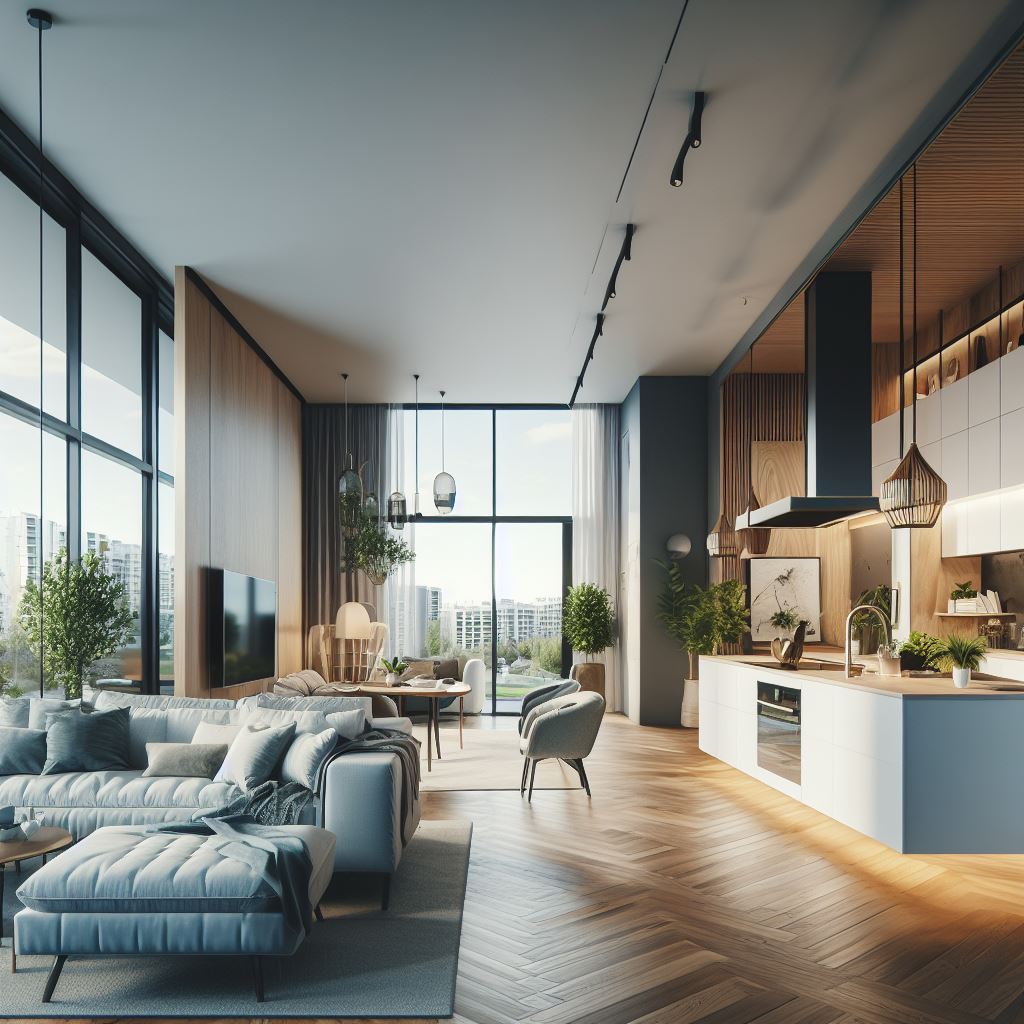How to Calculate the Perfect Apartment Rental Price

Are you tired of guessing the right price for your apartment rental? Stop relying on hunches and take a data-driven approach.
By analyzing local market trends, calculating expenses, and considering unique features, you can determine the perfect rental price.
Assess the demand and competition in your area to find the sweet spot for maximum profit or a fair deal.
Say goodbye to uncertainty and hello to informed decision-making. Let’s dive into the art of calculating the perfect apartment rental price.
Key Takeaways
- Gather information from various sources such as online rental platforms, local real estate agencies, and property management companies to research local rental market trends.
- Calculate operating expenses by considering costs like property taxes, insurance premiums, utilities, repairs, and property management fees.
- Take into account the apartment’s unique features and amenities, market demand, and rental rates of comparable properties to determine the rental price.
- Assess the demand and competition in the area by researching average rental rates, availability of apartments, and the quality of competing units.
Research Local Rental Market Trends
To research local rental market trends, you should start by gathering information from various sources. Begin by exploring online rental platforms such as Zillow, Trulia, and Craigslist. These platforms provide valuable insights into current rental prices, property availability, and neighborhood demographics. Additionally, you can consult local real estate agencies and property management companies to obtain market reports and valuable data on rental trends. Analyzing data from the Multiple Listing Service (MLS) can also give you a comprehensive understanding of rental prices in your area.
Furthermore, it’s important to keep an eye on local news sources and online forums where renters and landlords discuss the rental market. These platforms offer valuable information on market conditions, changes in rent prices, and tenant preferences. Additionally, consider attending local real estate seminars or workshops to gather insights from industry experts.
When conducting your research, pay attention to factors that influence rental prices, such as location, property size, amenities, and demand. Evaluate the average rental rates for similar properties in your area and compare them to your own property to determine a competitive price. By gathering information from various sources and analyzing market trends, you can make informed decisions and set an optimal rental price for your apartment.
Calculate the Operating Expenses
To calculate the operating expenses for your apartment, start by taking into account all the costs associated with maintaining and running the property. These expenses include property taxes, insurance premiums, utilities, repairs and maintenance, property management fees, and any other recurring costs. It’s important to gather accurate data on these expenses, as they’ll play a crucial role in determining the rental price for your apartment.
Begin by compiling all the relevant financial documents, such as utility bills, property tax statements, and insurance invoices. Take note of the amounts paid for each expense category over a specific period, such as a year. Calculate the average monthly cost for each expense by dividing the total amount spent by the number of months. This will give you an estimate of the ongoing monthly operating expenses for your apartment.
Once you have calculated the operating expenses, you can use this information to determine the appropriate rental price for your apartment. By subtracting the operating expenses from the desired monthly profit, you can arrive at a figure that covers both the expenses and provides a reasonable return on investment.
Considering the apartment’s unique features and amenities will be the next step in determining the rental price. By analyzing the market demand and comparing similar properties in the area, you can fine-tune the rental price to ensure it aligns with the apartment’s value proposition.
Consider the Apartment’s Unique Features and Amenities
Considering the apartment’s unique features and amenities, you can further refine the rental price by analyzing market demand and comparing similar properties in the area. The features and amenities of an apartment play a crucial role in determining its rental value. To accurately assess the impact of these factors, it’s essential to gather data and conduct a thorough analysis.
Start by identifying the unique features that set your apartment apart from others in the market. Is it a spacious unit with high-end finishes? Does it offer a stunning view or access to exclusive amenities such as a pool or gym? These distinctive qualities can significantly influence the rental price.
Next, analyze the market demand for apartments with similar features and amenities in your area. Look at the rental rates of comparable properties in the neighborhood to gauge the market value. Consider factors such as location, proximity to public transportation, schools, and shopping centers, as well as the overall desirability of the area.
Additionally, take into account any additional costs associated with maintaining and providing these amenities. For example, if your apartment offers a concierge service or on-site parking, factor in the expenses associated with these services.
Assess the Demand and Competition in the Area
Analyze the demand and competition in your area to accurately determine the perfect rental price for your apartment. Understanding the demand for rental properties in your specific location is crucial in setting the right price. Start by researching the average rental rates in your neighborhood or city. Look at online listing platforms, local real estate agencies, and classified ads to gather data on similar apartments in the area. This will give you a sense of the current market prices and help you set a competitive rate.
Apart from average rental rates, it’s important to assess the competition in your area. Take note of the number of available apartments and how quickly they’re being rented out. Consider the amenities and features they offer, as well as the condition and size of the units. This information will help you position your apartment in the market and determine whether you can charge a premium for certain desirable features or if you need to adjust your price to stay competitive.
Determine the Optimal Rental Price for Maximum Profit or Fair Deal
Calculate the optimal rental price for your apartment by carefully considering factors such as location, amenities, and market demand. Setting the right rental price is crucial to maximize your profit or attract potential tenants with a fair deal.
To help you determine the optimal rental price, follow these steps:
- Research the market: Start by analyzing the rental prices of similar apartments in your area. Look for properties with similar features, such as size, number of bedrooms, and amenities. This will give you a benchmark to compare your apartment’s rental price.
- Consider location: Location plays a significant role in determining rental prices. Apartments in desirable neighborhoods or close to amenities like schools, parks, and shopping centers tend to command higher prices. Take into account the convenience and desirability of your apartment’s location when setting the rental price.
- Assess demand and competition: Evaluate the current demand for rental properties in your area. Are there many vacancies or a shortage of apartments? Additionally, consider the competition. If there are numerous similar apartments available, you may need to adjust your rental price to stay competitive.
By carefully analyzing these factors, you can determine the optimal rental price that strikes the right balance between maximizing profit and offering a fair deal to potential tenants.
Remember to regularly assess the market and adjust your rental price accordingly to stay competitive and ensure maximum profitability.
Frequently Asked Questions
How Can I Negotiate the Rental Price With the Landlord or Property Manager?
To negotiate the rental price with the landlord or property manager, gather data on comparable rents in the area. Highlight any issues or improvements needed in the apartment, and be prepared to justify your desired price based on market trends and conditions.
What Are Some Additional Costs I Should Consider When Calculating Operating Expenses?
When calculating operating expenses for renting an apartment, consider additional costs like utilities, insurance, maintenance, and any fees imposed by the landlord. These expenses can significantly impact the final rental price.
Are There Any Specific Legal Requirements or Regulations I Need to Be Aware of When Renting Out an Apartment?
When renting out an apartment, it’s crucial to be aware of specific legal requirements and regulations. This ensures you stay compliant and avoid any potential legal issues that could arise in the rental process.
How Can I Effectively Market and Advertise My Rental Property to Attract Potential Tenants?
To effectively market and advertise your rental property, use high-quality photos and detailed descriptions to showcase its unique features. Utilize online platforms and social media to reach potential tenants and consider offering incentives for quick rentals.
What Steps Can I Take to Ensure a Smooth and Successful Rental Process, Including Screening Potential Tenants and Drafting a Rental Agreement?
To ensure a smooth and successful rental process, start by thoroughly screening potential tenants. Gather information on their rental history, creditworthiness, and income. Then, draft a comprehensive rental agreement that clearly outlines the terms and conditions to protect both parties.



